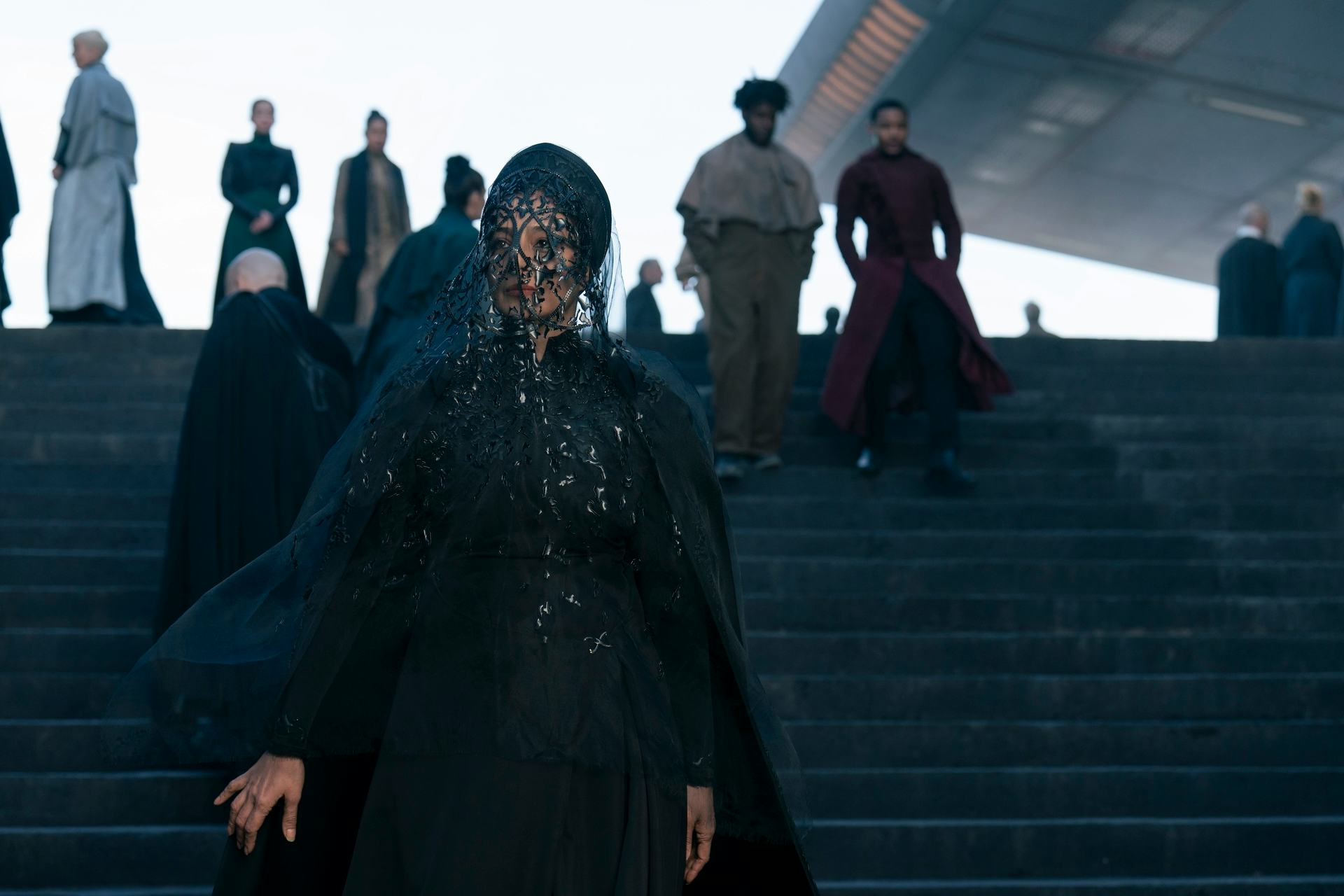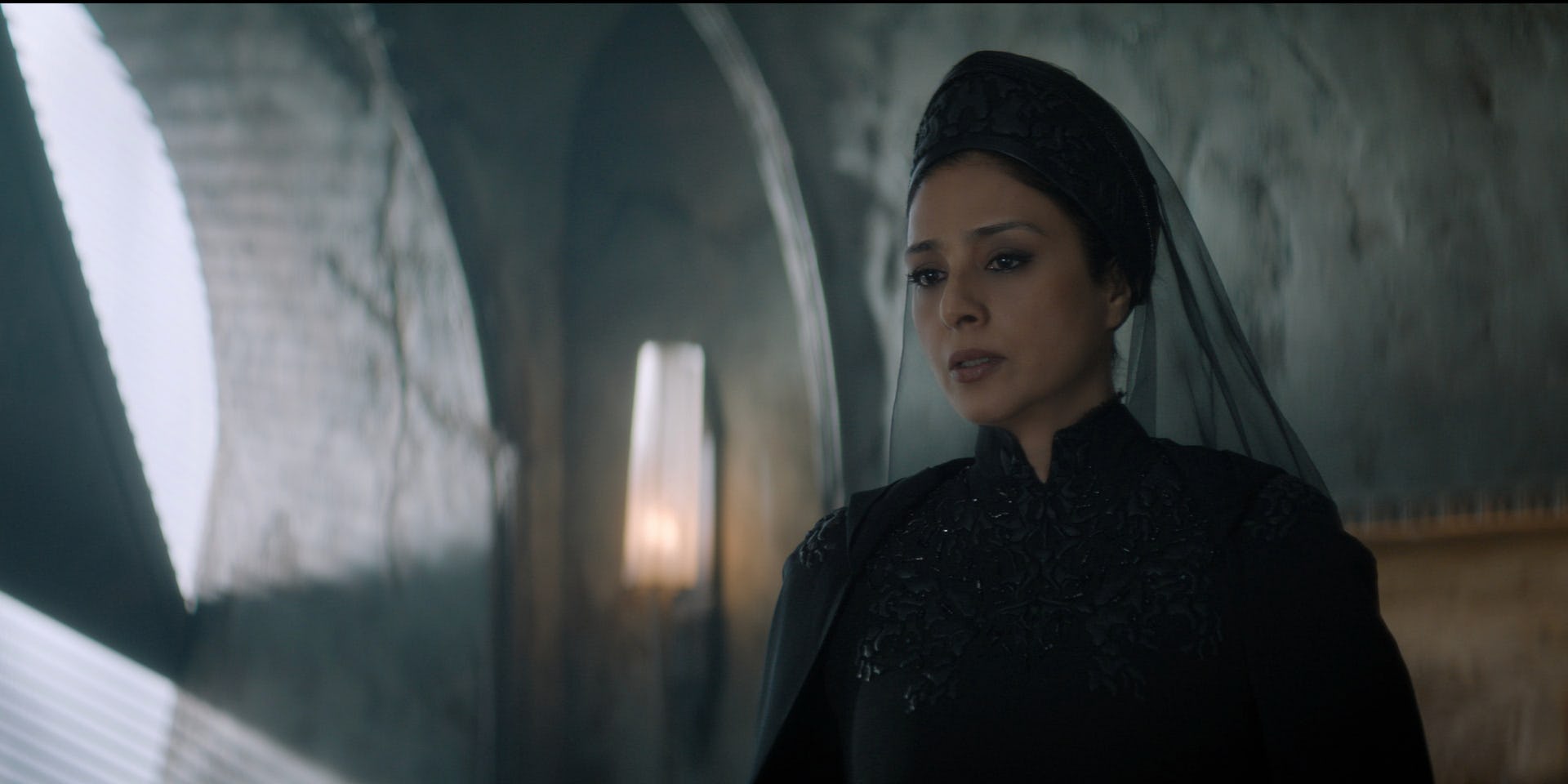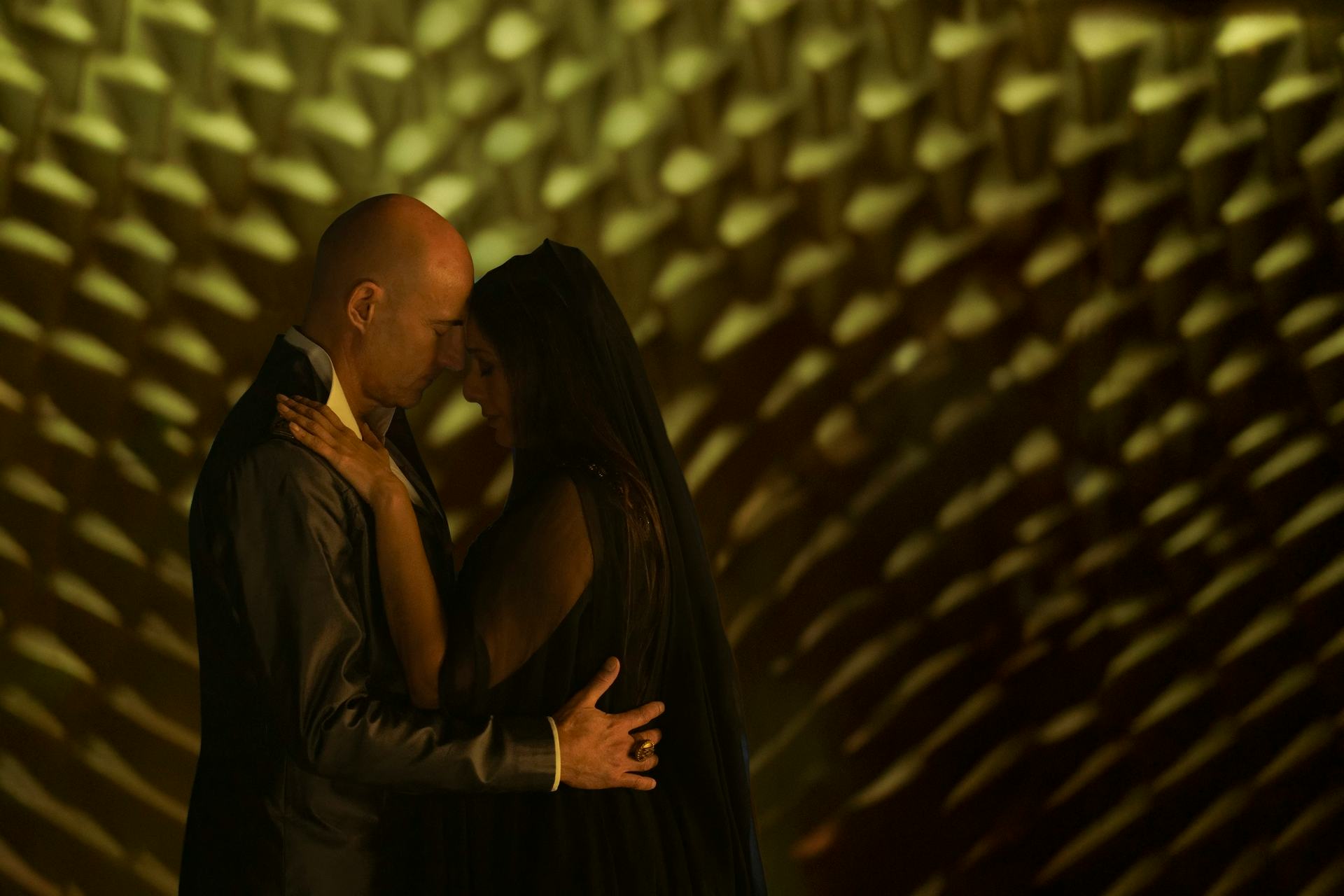
As Dune: Prophecy’s first season heads toward the finale, its penultimate episode, “In Blood, Truth,” introduced several game-changing elements simultaneously. Not only is Desmond Hart’s true identity more or less explained, and various dominos tipped over for the finale, but we also got a crucial new character who has secretly been lurking in the shadows of the show the entire time.
When Sister Francesca — played by celebrated actor Tabu — arrives on Salusa Secundus in Episode 5 of Prophecy, it may seem like an 11th-hour character has suddenly been introduced to solve certain plot problems. But, if you look closely, Sister Francesca has been there all along, visible in all the relevant flashbacks to Valya’s early days of forming her sect of the Sisterhood. When Valya is played by Jessica Barden in the flashbacks, one of her allies is Sister Francesca, played by Charithra Chandran.
But in the present tense of the show, Francesca’s relevance reveals a pivotal Bene Gesserit power. And to unpack why she’s such a big deal, and how her arrival in Episode 5 changes everything, Inverse caught up with actor Tabu to get her take on this enigmatic and electric character.
Spoilers ahead for Dune: Prophecy, Episode 5, “In Blood, Truth.”

Before taking the part of Francesca, it was “very important” to Tabu that she understood her character’s greater relevance to the arc of the series. “Anytime somebody comes towards the end of a film or end of a story, they have to have a big impact. They have to change something,” Tabu says. “So when I read the kind of stuff Francesca was going to be doing, I was like, ‘OK, she makes a pretty big impact.’”
Beyond Valya’s machinations and schemes, the biggest impact Francesca makes right away is to low-key solve the mystery of the parentage of Constantine Corrino (Josh Heuston), the Emperor’s son, who is only the half-brother of Princess Ynez (Sarah-Sofie Boussnina). Here, we learn that Constantine was the child of Emperor Javicco Corrino (Mark Strong) and Sister Francesca before he became Emperor. Establishing this relationship is a huge part of Prophecy’s overall plot. More importantly, it also retroactively introduces the Bene Gesserit skill of “imprinting” into the show, which Tabu says she had a hand in crafting on screen.
“I wanted the imprinting to be very, very defined,” Tabu says. “[With the showrunners,] I always spoke about how the imprinting thing should actually come out on screen. That’s why she’s here. We had to see that happening.”
Though only alluded to in the original novel Dune through the actions of Lady Margot Fenring (Léa Seydoux in Dune: Part Two), “imprinting” was the Bene Gesserit power of seduction and control. In the case of Francesca and Javicco, we learn that Francesca imprinted herself onto Javicco ages ago, thus allowing the Sisterhood to control the sitting Emperor, to a certain degree. Because Francesca doesn’t come from the expanded universe Dune spinoff books, the power she exerts on the Imperium, and thus the entire chronology of Dune, is as profound as it is retroactive.

Frank Herbert always made it clear that the Bene Gesserit Sisterhood was manipulating the aristocracy from the shadows, but Francesca is now the first Sister we see who actively set that plan in motion. Not only did she create a royal heir through Sisterhood instruction, but she also basically controlled one of the earliest emperors of the Imperium, just after the Bulterian Jihad. What Prophecy makes interesting about all of this is that while the Dune timeline will view these things as crucial turning points, Francesca isn’t entirely sold on all of Valya’s plans, or the still ill-defined intentions of the Sisterhood at this point. In other words, Prophecy is filling in some Imperium gaps that are even missing from the various prequel novels.
“I knew that there was a lot of material for me to play with, even if you don’t see it on screen,” Tabu says. “It was an open field for me to play it the way I wanted to. But one question I had was whether she was gray. And I realized she’s not entirely gray.”
What Tabu means is that although Sister Francesca has conflicting loyalties, she has a clear sense of herself and what she believes. “I added a moment where she says ‘Sisterhood Above All,’” Tabu reveals. “I thought it was important that we understood what she valued in the end.”
Although Dune: Prophecy Season 1 is only six episodes long — and the finale will see some explosive moments between the Emperor and Sister Francesca — Tabu says that she does think there is a bigger story to explore with what happened to her character in between the flashbacks and the present of the series.
“I think after the show is over, I’m sure people will want to know about what happened between her and Javicco,” she says. “Where did she disappear all these years? Where the hell was she? Which planet was she gathering on? I’d love to see that.”






